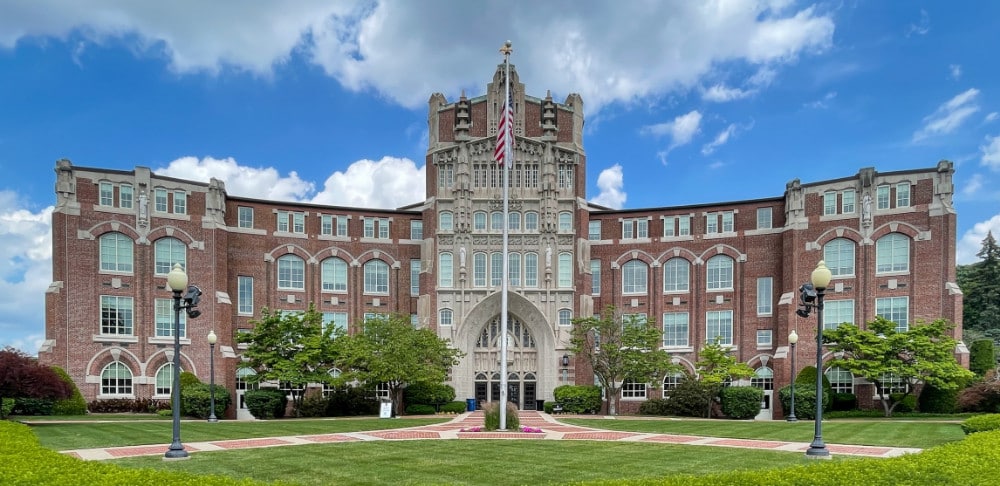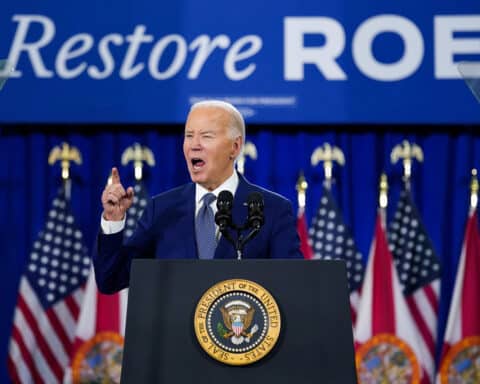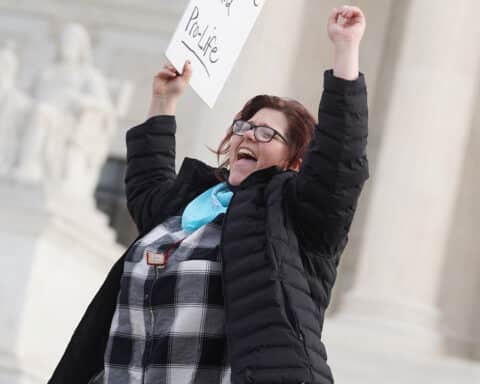When the Supreme Court handed down its decision in Dobbs v. Jackson Women’s Health Organization in June, overturning Roe v. Wade, it marked a crucial moment for the protection of unborn life. It also shifted the United States into a new moment in the public discourse. With abortion law returned to the jurisdiction of states, the possibility — and the necessity — of real conversation with fellow citizens suddenly emerged.
Unfortunately, this is easier said than done. Real conversation has become a rarity. We have become more accustomed to slogans and insults hurled back and forth, often with no more nuance than 144 characters allow.

But this is a task we have to take up. In the most practical sense, our democratic, pluralistic situation demands it. None of us can simply coerce those who disagree with us. We have to make our case. In the case of abortion law, it is especially important, in fact, that we work to arrive at laws that are well-reasoned and nuanced, and conversation is a powerful tool to reach that end.
For pro-lifers there are even more important motivations at hand. A pro-life position must always be grounded in a commitment to the fundamental dignity of every human being — including those who oppose us on this issue. Recognizing their dignity always includes recognizing and engaging their intellect. As a teacher at a Catholic college, I am committed to the task, and I have also seen a particular challenge up close: We must make the pro-life case to our own young people, many of whom are unconvinced.
With all this in mind, I recently took part in a simple yet remarkable event at the place I teach, Providence College. At the prompting of our college president, Dominican Father Ken Sicard, a small group of us worked over several months to organize a public event. Two professors representing a pro-choice position and two professors representing a pro-life position — myself included — offered brief, careful presentations of our positions. We then offered short responses to one another’s comments, and, finally, time was reserved for questions.
As I said, it was so simple that it might be hard to see exactly what was accomplished. My sense, though, is something important happened. The level of attention among the 500 or so attendees (including students, faculty, staff, administrators and a number of the college’s trustees) was striking. All were completely absorbed for 90 minutes — listening, absorbing, considering.
In particular, our students saw their teachers engage on a difficult and divisive issue without any of the animus or ad hominems to which they are accustomed. They also heard a pro-life case presented with precision and conviction — and for some of them, this is a first. (One of our Campus Ministry staff reported that several students said the event moved their vague and unexamined pro-choice convictions toward a new openness to a pro-life position.) I myself left with a renewed conviction that, in this place dedicated to intellectual inquiry, we could address hard questions.
Providence College has a particular legacy in this matter. As our president put it, we are “grounded in the liberal arts and committed to veritas,” and we have “an obligation to explore and discuss issues that are uncomfortable and controversial, and to do so in a thoughtful and respectful manner.” In a place where we often study Thomas Aquinas, he noted that “disputation of this type has been a hallmark of Dominican higher education since the 13th century.” An event like this, though, could no doubt inspire many kinds of initiatives in many places.
On this issue, there is so much more to do. For us, this was one small but important step.
Holly Taylor Coolman is an assistant professor of theology at Providence College in Rhode Island.





